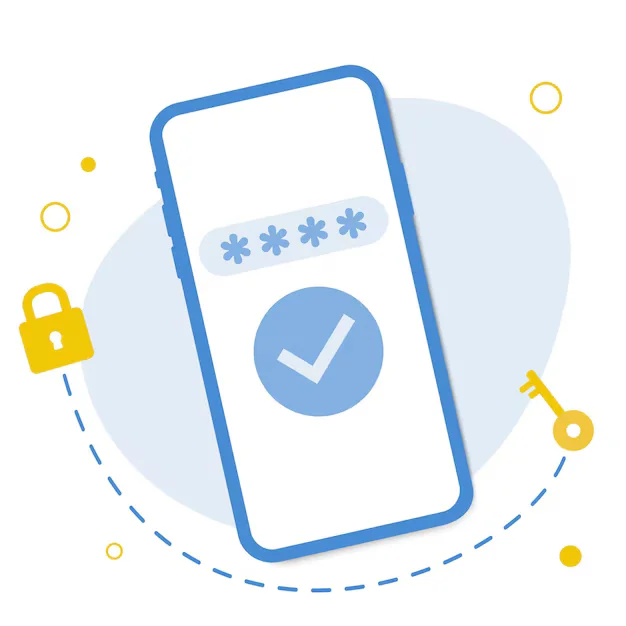In today’s web applications, protecting user credentials is critical. Storing passwords in plain text is a dangerous practice that exposes users to identity theft and data breaches. That’s why developers must always hash passwords before storing them in a database. In PHP, the best and most secure way to hash passwords is by using Bcrypt, a hashing algorithm designed specifically for password protection.
Bcrypt automatically handles salting, which adds a random string to each password before hashing, and it’s intentionally slow — making brute-force attacks significantly harder. By integrating Bcrypt properly into your PHP authentication system, you ensure that even if your database is compromised, user passwords remain protected.
Why Bcrypt Is the Best Choice for Password Hashing
Unlike general-purpose hashing algorithms like MD5 or SHA-1, Bcrypt was created for the specific purpose of securing passwords. It uses a technique called key stretching, which makes the hashing process deliberately slow to prevent attackers from testing billions of passwords per second.
Moreover, Bcrypt automatically generates a unique salt for each password and includes that salt as part of the resulting hash. This means that two users with the same password will have completely different hashes in your database — adding an extra layer of security by preventing rainbow table attacks.
How Password Hashing Works in PHP with Bcrypt
PHP provides a built-in, simple-to-use function: password_hash(). This function uses Bcrypt as its default algorithm and takes care of salting and cost management for you. When you hash a password with password_hash(), PHP generates a secure string that includes the salt and cost factor. When verifying a password later, you use password_verify() to check the input password against the stored hash.
This two-step process — hashing on signup and verifying on login — creates a strong and flexible authentication system that meets modern security standards.
Salting, Cost, and Security Explained
When hashing passwords with Bcrypt in PHP, the cost parameter defines how slow the hashing should be. A higher cost makes the hashing more secure but also more resource-intensive. PHP defaults to a cost of 10, which is suitable for most applications, but you can raise it if your server can handle it.
Salting is done automatically with Bcrypt — you don’t need to generate or manage salts manually. This makes it more secure and easier to implement, reducing the chances of developer error or poor cryptographic practices.
Verifying Hashed Passwords Securely
Hashing a password is only half the job. On login, the user’s raw password must be checked against the stored hash. PHP’s password_verify() handles this comparison securely. It analyzes the Bcrypt hash structure and compares the provided password using the embedded salt and cost. If it matches, the user is authenticated.
It’s important not to use == or === operators for comparing hashes. Always rely on password_verify() to avoid timing attacks or mismatch issues.
Rehashing for Evolving Security Standards
Over time, what is considered a strong hash today may become outdated. PHP offers password_needs_rehash() — a function that checks whether the stored password hash uses an outdated algorithm or cost. You can use this to rehash passwords when users log in, ensuring long-term password security as standards evolve.
For example, if you originally hashed passwords with a cost of 10 but now want to raise it to 12, password_needs_rehash() will detect that and allow you to update the hash seamlessly.
Common Mistakes to Avoid
Many beginners fall into dangerous practices when handling passwords in PHP:
-
Using MD5, SHA-1, or SHA-256 — these are fast, general-purpose hashes and are not safe for password storage.
-
Reusing salts or hardcoding them. Always let
password_hash()handle the salt automatically. -
Storing raw passwords or decryptable encrypted passwords. Passwords should never be reversible.
-
Using
==to compare passwords. Always usepassword_verify()to safely check input.
By avoiding these mistakes, your application becomes significantly more secure and aligned with current best practices.
Real-World Use Cases and Benefits
Proper password hashing protects your users in countless scenarios:
-
If your database is hacked, the attacker still cannot retrieve usable passwords.
-
You reduce liability for data breaches — encrypted credentials mean less legal exposure.
-
You prevent credential stuffing attacks, where stolen emails/passwords are used on other sites.
-
Your users gain confidence that their privacy and security are respected.
These benefits make password hashing with Bcrypt a non-negotiable standard in professional PHP development.







